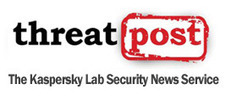Über eine Cross-Site-Scripting-Schwachstelle können Angreifer WordPress-Installationen kompromittieren. Betroffen sind alle Versionen bis einschließlich WordPress 4.4.
Mit einem Wartungs-Update beheben die Entwickler des Content-Management-Systems WordPress insgesamt 52 Bugs, die seit erscheinen Version 4.4 gefunden wurden. Admins, die Auto-Updates deaktiviert haben, sollten WordPress 4.4.1 schnellstmöglich manuell installieren, da das Update auch eine Cross-Site-Scripting-Lücke (XSS) behebt, über die Angreifer das CMS kompromittieren können.
Research and publish the best content.
Get Started for FREE
Sign up with Facebook Sign up with X
I don't have a Facebook or a X account
Already have an account: Login
WordPress and Annotum for Education, Science,Professional Journal Publishing with multiple authors and peer-reviews as also Knol to WP Migration...
Curated by
Gust MEES
 Your new post is loading... Your new post is loading...
 Your new post is loading... Your new post is loading...
|

Bart van Maanen's curator insight,
March 28, 2013 6:20 AM
Hoe minder plugins, hoe beter, blijft een goede aanbeveling. |















Über eine Cross-Site-Scripting-Schwachstelle können Angreifer WordPress-Installationen kompromittieren. Betroffen sind alle Versionen bis einschließlich WordPress 4.4.
Mit einem Wartungs-Update beheben die Entwickler des Content-Management-Systems WordPress insgesamt 52 Bugs, die seit erscheinen Version 4.4 gefunden wurden. Admins, die Auto-Updates deaktiviert haben, sollten WordPress 4.4.1 schnellstmöglich manuell installieren, da das Update auch eine Cross-Site-Scripting-Lücke (XSS) behebt, über die Angreifer das CMS kompromittieren können.